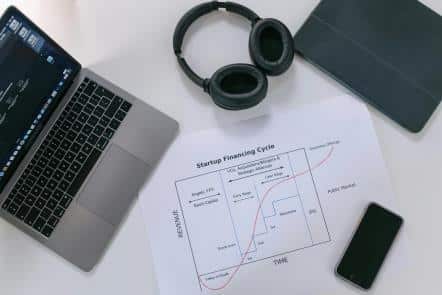Mobile technology topics for presentation: Mobile technology has woven itself into the very fabric of our lives. From the constant connection we crave to the tools that empower businesses and individuals, mobile devices have revolutionized the way we communicate, access information, and interact with the world around us. This article delves into some of the key mobile technologies that are shaping the present and propelling us towards an even more connected future.
1. The Backbone of Mobility: Network Generations (2G, 3G, 4G, 5G)
The ability to connect on-the-go wouldn’t be possible without the ever-evolving generations of mobile network technologies. Here’s a breakdown of some key players:
- 2G (Second Generation): The pioneer, offering basic voice communication and SMS messaging. 2G laid the foundation for mobile communication but lacked the data transfer speeds needed for today’s internet-driven world.
- 3G (Third Generation): introduced data capabilities, enabling basic web browsing, email access, and the initial wave of mobile applications.
- 4G (Fourth Generation): A significant leap forward, offering significantly faster data speeds and allowing for video streaming, music downloading, and more complex mobile applications.
- 5G (Fifth Generation): The current cutting edge, boasting ultra-fast data speeds, low latency (response time), and the potential to revolutionize industries through the Internet of Things (IoT) and connected devices.
The transition from one generation to the next isn’t instantaneous, with overlap between technologies as infrastructure upgrades occur. However, each new generation unlocks a new level of connectivity and opens doors for innovative mobile applications and services.
2. The Power in Your Pocket: Mobile Operating Systems (Android, iOS)
The operating system acts as the brain of your smartphone, providing the interface for you to interact with applications and manage your device. Two dominant players control the market:
- Android: Developed by Google, Android is an open-source platform, offering greater customization for users and manufacturers. It boasts a wider range of devices at various price points.
- iOS is Apple’s proprietary operating system, known for its user-friendly interface, tight integration with Apple’s ecosystem of devices, and strong focus on security.
The choice between Android and iOS often comes down to personal preference and budget. Android offers a wider variety of devices and greater user control, while iOS provides a more streamlined experience and tighter integration with Apple products.
3. The App Revolution: Mobile Applications and the Rise of the App Economy
Mobile applications, or apps, are the driving force behind the functionality and popularity of smartphones. From productivity tools and social media platforms to entertainment, education, and healthcare solutions, apps cater to virtually every need and interest.
The rise of the app economy has created a new world of opportunities for businesses and developers. Businesses can leverage apps to reach a wider audience, provide enhanced customer service, and drive sales. Developers can create innovative solutions and reach millions of users globally, generating revenue through advertising, in-app purchases, or subscriptions. mobile technology topics for presentation
However, the app ecosystem also faces challenges like app fatigue (users downloading fewer apps), data privacy concerns, and fierce competition for user attention.
4. The Future of Mobility: Emerging Technologies on the Horizon
The world of mobile technology is constantly evolving. Here’s a glimpse into some exciting trends that are shaping the future:
- Artificial Intelligence (AI): AI integration in mobile apps is on the rise, offering functionalities like personalized recommendations, voice assistants, and enhanced security.
- Augmented reality (AR) and virtual reality (VR): These technologies offer immersive experiences that can be used for gaming, education, training, and even virtual tourism.
- Foldable Phones: Offering a combination of smartphone and tablet functionalities, foldable phones are a new design trend that could redefine how we interact with our devices.
- The Internet of Things (IoT): Connecting everyday objects to the internet, the IoT has the potential to revolutionize various aspects of our lives, from smart homes and wearables to connected cars and industrial automation.
These emerging technologies hold immense potential to further integrate mobile devices into our lives, creating new possibilities for communication, work, entertainment, and more.
5. The Double-Edged Sword: Security and Privacy Concerns in the Mobile World
The convenience of mobile technology comes with a responsibility to manage security and privacy risks. Here are some key concerns:
- Data breaches and leaks: Mobile devices store a wealth of personal information, making them attractive targets for hackers.
- Malware and phishing attacks: malicious software can steal data or hijack devices, while phishing scams attempt to trick users into revealing sensitive information.
- Location tracking: Mobile apps often track user locations, raising privacy concerns about mobile technology topics for presentation








